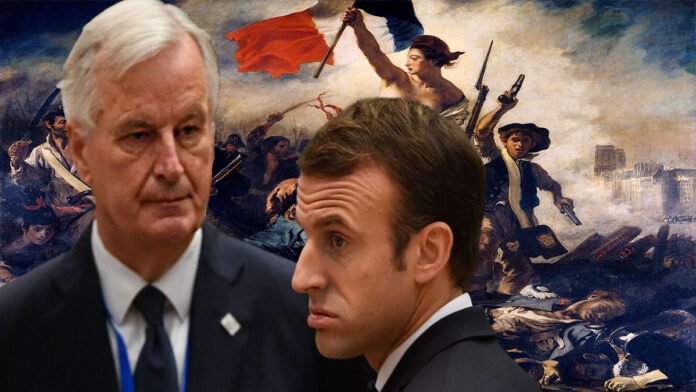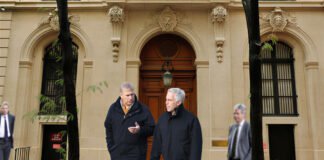In a seismic political moment, the French government has collapsed, with Michel Barnier ousted by an overwhelming 331-vote no-confidence motion—the first such governmental implosion since 1962. This is more than a mere political shuffle; it’s a stark indictment of Emmanuel Macron’s increasingly precarious political project.
Barnier’s downfall came after he brazenly used presidential decree to force through a budget that would slash €60 billion in social spending—a move that united both the far-left and far-right in opposition. The irony is delicious: a centrist technocrat undone by the very political polarization he claimed to transcend.
Macron appointed former EU Brexit negotiator Barnier in September to break the deadlock and tackle the country’s deficit.
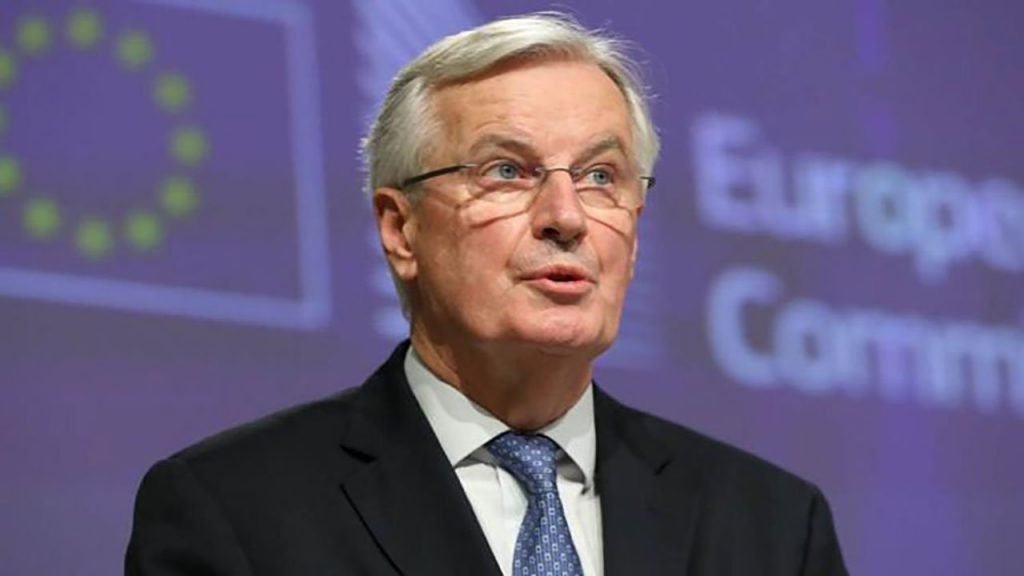
During Wednesday’s debate in the National Assembly, Barnier told members he was “not afraid,” but warned that removing him would make “everything more difficult”.
The New Popular Front and National Rally, typically at opposite ends of the political spectrum, found common cause in rejecting Barnier’s austerity agenda. Marine Le Pen’s calculated rhetoric captures the moment perfectly—the budget is “toxic for the French,” a damning assessment that resonates beyond partisan lines.
Barnier offered to make concessions in his budget measures, such as scrapping an electricity tax hike, but opposition leaders have argued they do not go far enough to address their concerns.
Le Pen said during the debate that Barnier’s “stubborn adherence to dogma and doctrine prevented him from making the slightest concession, which would have avoided this outcome”.
Macron’s response? A televised address and a steadfast refusal to resign. But this is whistling past the political graveyard. The parliamentary deadlock reveals the fundamental weakness of his centrist experiment—a political formation without genuine popular roots, sustained only by institutional inertia.
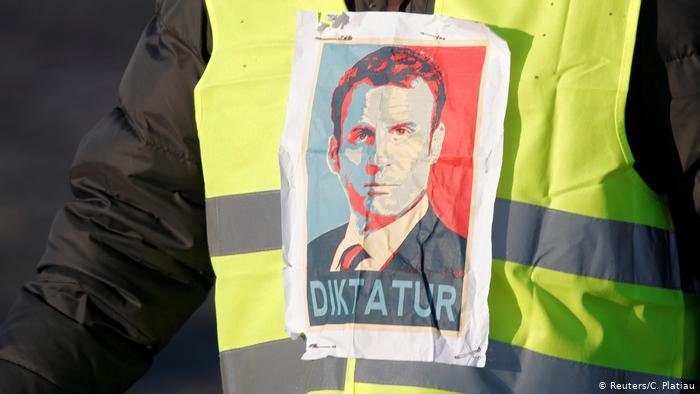
Following the collapse of government, France’s left-wing parties urged President Emmanuel Macron to resign and hold early presidential elections: “We are now calling on Macron to go,” Mathilde Panot, the head of the parliamentary faction of the hard-left France Unbowed (LFI) party told reporters, urging “early presidential elections” to solve a deepening political crisis.
Until now, Macron rejected calls for his resignation, saying such a scenario amounted to “political fiction”.
But for France, things will only get worse…
Mathieu Savary, the Chief Investment Strategist at BCA research, said his view was that, “paralysis will remain the dominant feature of French politics for the next two years, which means that the debt is unlikely to be fundamentally addressed. So we will remain in an environment of volatility around French bonds.”
“The odds that France is downgraded (by a credit rating agency) are rising” he added.
James Athey, a fixed income manager at Marlborough in London said he was also weighing up the uncertainty. “This was not an unexpected event. But it is going to nag at investors until we have clarity. And we can’t have clarity until July.”
Nick Rees, a senior FX market analyst at Monex Europe said he was amazed that the euro hasn’t moved much. “The French government has collapsed. It should be lower.”
“There are two major powers in Europe, France and Germany, both of which right now are emasculated.”
The coming months will be crucial. No new elections can be held until July, leaving France in a state of political suspended animation. Barnier remains as a caretaker, a diminished figure presiding over a government that has lost all legitimacy.
One thing is certain: the French political landscape has been irrevocably altered. Macron’s dream of a radical centrist realignment lies in tatters, exposed as nothing more than a hollow technocratic fantasy.
Europe’s Political Earthquake: Beyond French Fractures
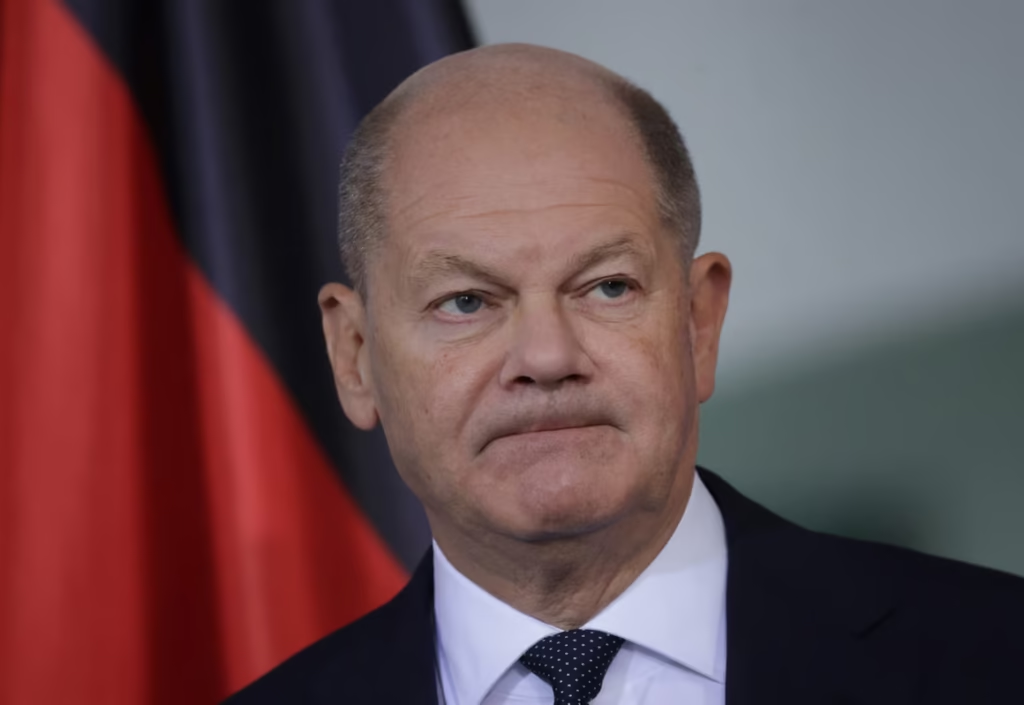
This isn’t just a French crisis. It’s a systemic breakdown of EU political governance—a continent-wide fever revealing the deep structural weaknesses of post-democratic institutions.
In Germany, Olaf Scholz’s coalition has unravelled with surgical precision, exposing the fundamental contradictions of centrist coalition politics. The trigger? Christian Lindner’s dramatic exit as Finance Minister, following irreconcilable disagreements on economic policy that cut to the heart of Germany’s political malaise.
The budget battle reveals more than mere fiscal disagreement. It’s a profound ideological clash: Lindner’s liberal economic orthodoxy—demanding tax cuts and scaling back climate policies—directly conflicts with the green transition ambitions of his coalition partners. This isn’t negotiation; it’s political warfare by spreadsheet.
A potential snap election would likely bring the Christian Democratic Union (CDU) to power—a party that has pivoted sharply rightward on migration while maintaining a hawkish stance on Ukrainian military support. This represents more than a simple political transition; it’s a fundamental reshaping of Germany’s post-war political consensus.
The €2.4 billion budget deficit is more than a number. It’s a symbol of the economic paralysis gripping European governance—a system increasingly unable to respond to complex economic challenges, trapped between neoliberal austerity and necessary social investment.
We are witnessing the potential unravelling of the post-2008 centrist consensus. The political center—once presented as a technocratic solution to ideological conflict—is revealing itself as nothing more than a fragile construct, unable to address genuine social and economic challenges.
Democracy is not dying. It is being reborn—painfully, messily, with all the convulsive energy of a system desperately seeking genuine representation. A democracy that rejects the politics of austerity and fights for the protection of its people a Democracy that has teeth enough to make its politicians accountable.
Support Independent Journalism Today
Our unwavering dedication is to provide you with unbiased news, diverse perspectives, and insightful opinions. We're on a mission to ensure that those in positions of power are held accountable for their actions, but we can't do it alone. Labour Heartlands is primarily funded by me, Paul Knaggs, and by the generous contributions of readers like you. Your donations keep us going and help us uphold the principles of independent journalism. Join us in our quest for truth, transparency, and accountability – donate today and be a part of our mission!
Like everyone else, we're facing challenges, and we need your help to stay online and continue providing crucial journalism. Every contribution, no matter how small, goes a long way in helping us thrive. By becoming one of our donors, you become a vital part of our mission to uncover the truth and uphold the values of democracy.
While we maintain our independence from political affiliations, we stand united against corruption, injustice, and the erosion of free speech, truth, and democracy. We believe in the power of accurate information in a democracy, and we consider facts non-negotiable.
Your support, no matter the amount, can make a significant impact. Together, we can make a difference and continue our journey toward a more informed and just society.
Thank you for supporting Labour Heartlands
